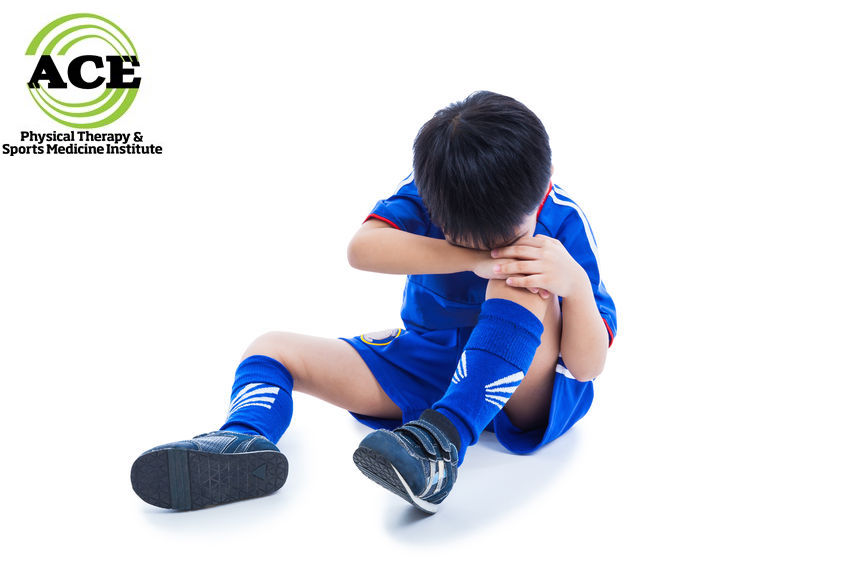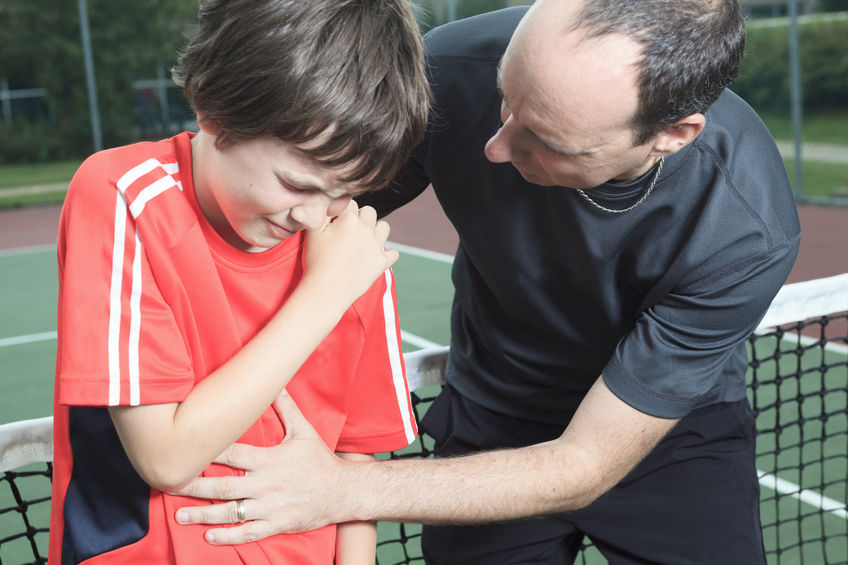YOUTH SPORTS

Tid Bits of Info
- 60 million youth participate in some sport and > 40 million participate in 2 or more.
- Over-use injuries are most prevalent in running sports.
- The inclusion of alternative activities helps to reduce the frequency and occurrence of over-use injuries.
- “Growth-spurts” cause a change in the way the soft tissue and joints respond to stress and strain.
- Seek the advice and treatment from a physical therapist if an injury occurs, and your child does not have to see their doctor first.
Participating in youth sports plays a positive role in youth development. Young people learn the value of teamwork and discipline while building physical skills, increasing mental awareness, and even improving self-perception. When the goal of youth sports becomes solely focused on potential gain through scholarships or professional play, there is a danger of imbalanced training and injury. Excessive participation in a single sport often leads to over-use injuries of various body parts.
The high level of competition in youth sports that is often driven by parental goals can put youth at risk of injury. The most common risk is over-use injuries, but traumatic injuries also occur. Over-use injuries often result from the repetitive over loading of the musculoskeletal system. Too much force at a submaximal level can lead to a “break down” of the tissue. The lack of proper rest time leads to fatigued tissue that has not replenished itself with the self-healing capabilities of the body. Every type of soft tissue and bone is effected by repetitive, sub-maximal forces and with the proper amount of rest these tissues can heal themselves and no injuries occur. Without a real “off-season,” our youth athletes face an increasing likelihood of over-use injuries to varying body parts.
Many factors can lead to over-use injuries in youth athletes:
- Growth Spurt – Young athletes are more susceptible to experience an injury if they are in a “growth spurt”. The soft tissue and all of the joint structures are skeletally immature and incapable of withstanding the added force that occurs as the size of the structures change during the “growth spurt”.
- Weak Muscles – The lack of lean body mass, primarily muscle tissue, can be a major cause of over-use injuries. The role of muscle is to move the body and help support it dynamically. If the body part is too large or moves too often the muscle tissue cannot support it and an injury can occur.
- Sport specialization – This has been the primary cause of over-use injuries. The child participates in the same sport and uses the same body parts in a similar manner all year long. The advantage of a “multi-sport” athlete is that the stresses and strains that are applied the varying body parts is changed when a different sport is played.
While most over-use injuries will not cause permanent damage to a particular body part, some injuries can be severe enough that the youth athlete must stop participating in sports for a prolonged period of time. If the injury involves the bony anatomy in the form of a stress reaction or fracture the athlete will have to stop all activities that will place stress across that particular bone. The rule of thumb when treating these injuries is simple: “if there is pain, then the fracture or reaction has not healed!”
Physical therapy can help to treat most of the over-use injuries that occur in youth sports. The primary goal of treatment is to reduce and resolve the symptoms. At the same time, therapy focuses on conditioning and educating the athlete so the symptoms won’t reoccur.
The first phase of treatment can be started immediately and it involves the RICE principles of acute injury treatment. This entails using Rest, Ice, Compression and Elevation of the injury site if needed. Many times there will not be a lot of acute swelling, but the pain will be persistent and frequently more intense following participation in the activity. In this situation, it is best to use a great deal of ice treatment on the injured/painful area following the activity. The use of ice can reduce the inflammation and in turn reduce the pain level. Use the ice on the directly on the skin for 10 – 15 minutes. If the athlete wants to use the ice treatment for a longer period of time have them place a thin barrier (i.e. paper tower) between their skin and the ice.
The second phase of treatment should be supervised by a physical therapist to be sure that the rehabilitation protocols and routine are performed correctly. The athlete will have to stretch and strengthen the injured body part and all other body parts that might have some effect on it. A weak core musculature is a common weak spot for young athletes. The core is the “foundation” to the body! The physical therapist works with the athlete to strengthen the core and all of the surrounding musculature at the injury site to help to prevent reoccurrence of the injury.
Getting treatment from a physical therapist is easy. The injured youth athlete does not have to visit their doctor first. The physical therapist can evaluate and treat the athlete and will refer the patient to a doctor if their condition warrants a trip to a specialist.
Youth sports are great and have a very positive effect on many young athletes. If the proper training is performed and enough rest time is allotted, the athlete should be able to participate pain free and often. Prevention of these injuries is always the best route to follow!

























